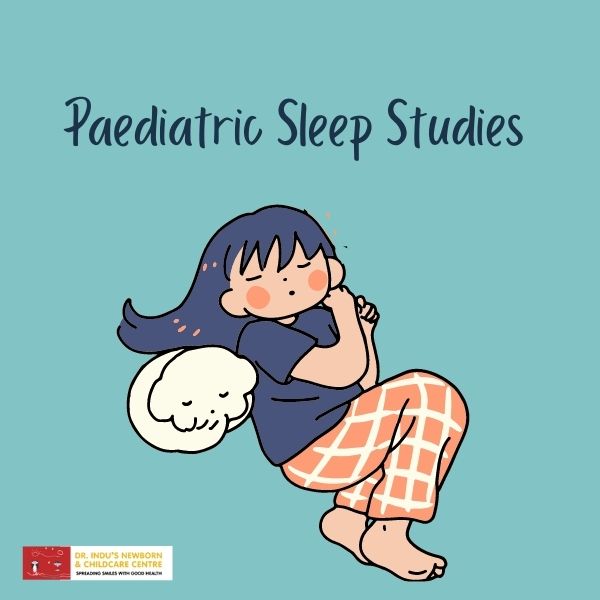What is a sleep study? How is a Sleep study done? Are sleep studies painful? How do I prepare my child for the sleep study?
A dozen questions swirled in my head when our Paediatrician referred us to Dr. Indu Khosla, Paediatric Pulmonologist and Sleep Specialist for our son Kiaan* to undergo sleep studies. We had realized that Kiaan dealt with situations much better if we explained to him before-hand what he could anticipate. How on earth was I to prepare him for a sleep study when I was as clueless as him! So here’s what I learnt, in case you too are in the same boat…
What is a Sleep Study?
Sleep study, also called as Polysomnography, is a test which is used to diagnose sleep disorders. Usually done at night, sleep study monitors various parameters like stages of sleep, oxygen levels, carbon dioxide levels, snore recording, leg movements, breathing patterns, recording of signals from the heart (ECG).
Why is a Sleep Study done?
Sleep studies monitor your child’s sleep stages and cycles. Your Paediatric Sleep Specialist will advise you a sleep disorder if they suspect a disruption in your child’s sleep patterns due to any of the below:
– Sleep apnea (condition where breathing stops and starts in sleep) or other sleep related breathing disorders
– Swelling of Tonsils / Adenoids
– Downs Syndrome / Attention deficit hyperactivity disorder / Disorders of the nervous and muscular system
– Obesity
– Syndromes associated with abnormalities of the face/skull or syndromes associated with Obesity: Prader Willi syndrome, Laurence-Moon-Biedl Syndrome, ROHHAD
– Unusual sleep behaviours like Movement disorders like periodic leg movements, restless sleep, sleep walking etc.
Children who suffer from any of the above conditions may have signs and symptoms like difficulty in sleeping, snoring and disrupted sleep, difficulty in waking up, leg pains, night terrors, and poor sleep habits.

How is a Sleep Study done?
We visited the sleep lab with Kiaan at night for an overnight stay and left the next day morning. Our sleep lab technicians stick few sensors on your child’s head (EEG Leads for the brain signals), chest (ECG Leads for the heart’s activity) and legs (EMG Leads for the muscle activity). A pulse oximeter would be placed on a finger to measure the oxygen levels (very similar to the one most of us now have at home). A few stretchy bands (called Respiratory Effort Bands) would be placed across your child’s chest and tummy to measure their breathing pattern. A microphone and a video camera will record the sound (snoring if any) and video (movements during sleep). A small tube (called nasal cannula) is placed across the face which has two prongs that sit just inside your child’s nostrils. These measure the flow of gases from your child’s nose. One parent can stay with the child in the same room throughout the night.
I was worried about some wire or connection coming off sometime in the night as Kiaan is a restless sleeper. You needn’t worry about that, as their technician will be monitoring your child through the night and will be available in case you need any assistance.
They took about 30 – 45 minutes to set up all the connections. A small light was left on. As Kiaan was quite co-operative all the connections were set up while he was awake. If your child isn’t comfortable, it can also be done after your child falls asleep.
Are sleep studies painful?
Sleep studies are not at all painful. No medicines or injections are given. No blood sample is drawn. None of these sensors are inserted into your child’s body and are all placed on the surface of your child’s body. Kiaan loves getting stickers from his teacher and I told him that that is all we would be placing on him.
How can you prepare your child for the sleep study?

Kiaan has always been fond of Dr. Indu Khosla as she has been his Paediatrician since the very beginning. He was very excited for his “pajama party in doctor aunty’s house”. We reached the sleep lab two hours before Kiaan’s usual sleep time so that he had enough time to settle into the new place.
– Depending on how old your child is, you may want to give them a walk-through of what to expect.
– Carry your child’s favourite toy, pillow or blanket in addition to their nappies / formulas / bottles / medicines.
– Dress your child in his usual night clothes.
– Ensure that your child has a normal night’s sleep the night before.
– Avoid chocolates, coffees or any caffeine containing sodas.
– Avoid any naps during the day of the sleep study.
Much to my relief, we got through the sleep study without any hiccups. I knew it was true for Kiaan too, when he insisted on calling up his Nani the next morning to tell her about his little adventure!
Dr. Indu Khosla is a Paediatric Pulmonologist and Paediatric Sleep Specialist with over thirty years of experience. She has been instrumental in setting up the first Level 1 Paediatric Sleep Lab in Mumbai which is specially designed to conduct sleep studies in children. For any queries, feel free to get in touch with Dr. Indu Khosla at (91)-22-26355829, 26300730, 8779982090 or fill out the form below.
* Name changed to protect privacy
Expert Moderator: Dr. Indu Khosla | Blog Author: Dr. Amrita Sodhi






